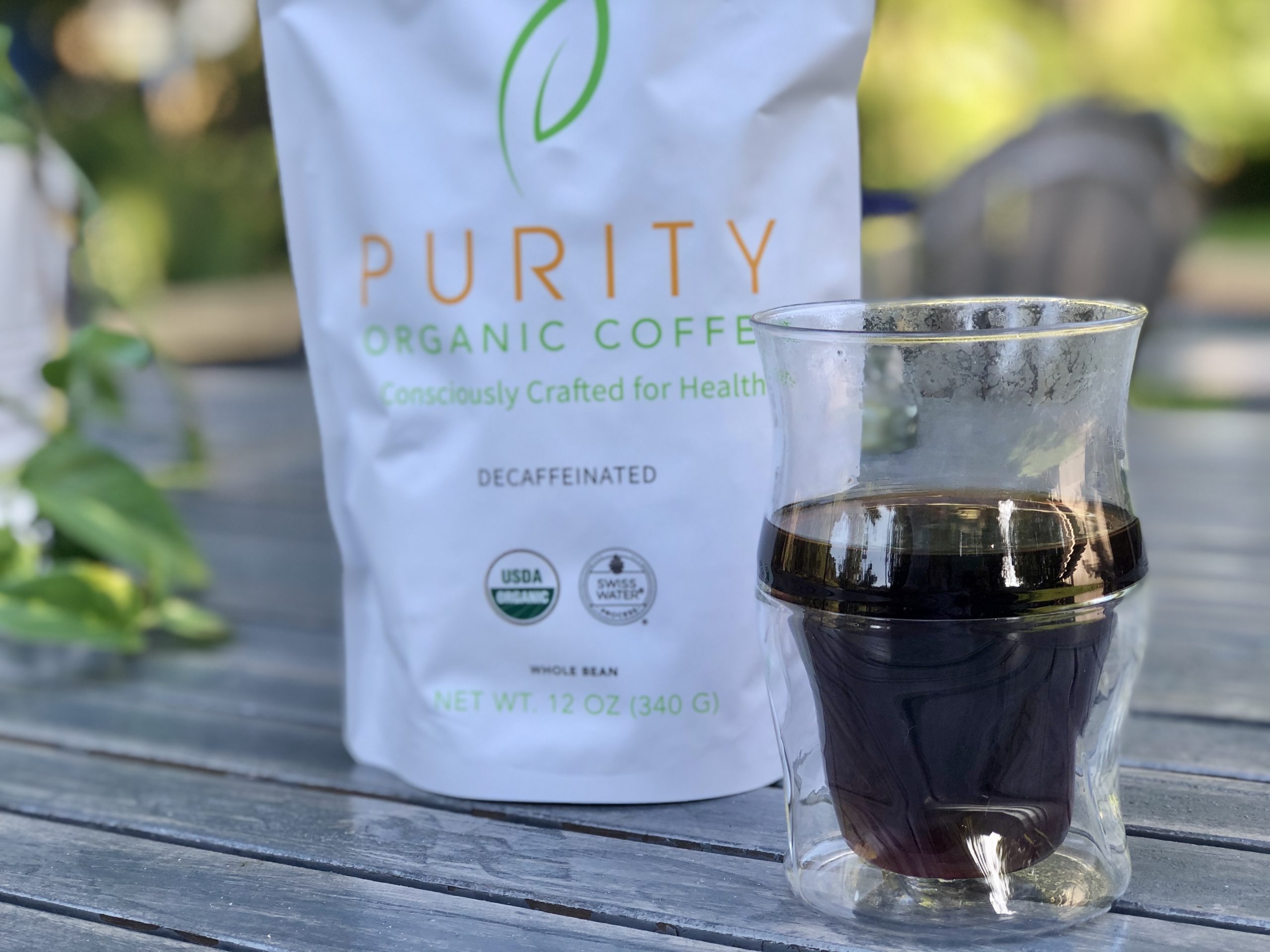Today, caffeine is America’s most popular drug — touted as an energy-boosting, focus-enhancing wonder supplement without any downside. Many people feel like they need to consume greater and greater amounts of caffeine to feel any “buzz”— this is just caffeine tolerance building up.
Why Reset?
Many of caffeine’s effects, including fat burning, strength benefits, and euphoria, are subject to tolerance, and may not occur in people who have built up a tolerance to caffeine, no matter how large the dose is. Interesting article: 7 Surprising Signs You Might Want To Cut Back On Caffeine
The Caffeine Reset
Avoid caffeine for at least seven days, preferably 21 days. Decaf coffee and tea are fine (in fact, I recommend you pick up some high-quality decaf for the reset). This will desensitize your body to caffeine. Once you reintroduce regular coffee, the positive effects will be increased and you will require LESS coffee to maximize coffee’s benefits.
If going caffeine-free cold turkey is too drastic for you (caffeine withdrawal can be pretty brutal for some people), take the first 7-14 days to slowly cut back on your caffeine intake. This may be the least unpleasant way to do it. Replacing one or two cups of regular coffee with decaf every few days will do the trick. If you normally drink eight cups of coffee a day, for example, replace two to four cups with decaf for two or three days. Then reduce your intake of regular to two cups for a few days.
For the last 7-14 days, do zero caffeine, so your body can properly reset itself. It won’t be easy, —potentially headache-filled—but if you can get through all 3-4 weeks, your tolerance should be reset. When you go back to having caffeine, start off will small amounts.
How Caffeine Works
The popular conception of caffeine is that it gives you scot-free energy. But the reality is more complicated.
Throughout the day, your brain produces a neurotransmitter called adenosine. When it binds to adenosine receptors in your neurons, nerve activity in the brain slows down, and you start feeling drowsy. To a nerve cell, caffeine looks just like adenosine, which means caffeine can bind to a neuron’s adenosine receptor. When caffeine does this, actual adenosine can no longer bind to the neuron, which means the brain can’t get its “time to get drowsy” message. Because your brain isn’t getting adenosine, instead of slowing down, neural activity starts speeding up.
The pituitary gland observes the increased brain activity as a signal that some sort of an emergency is going on, so it releases hormones that tell the adrenal glands to produce adrenaline (epinephrine) and cortisol. Adrenaline is the “fight or flight” hormone, and it has a number of effects on your body, including dilating your pupils, increasing your heartbeat, and releasing sugar from the liver into the bloodstream for extra energy. These reactions are why you feel a buzz after you consume caffeine.
Besides adrenaline, your body also releases cortisol when you consume caffeine. Cortisol stays in the bloodstream much longer than adrenaline and works with adrenaline to prepare your body to fight or flee. It constricts blood vessels, increases the amount of glucose and insulin in your blood (for quick energy), and increases and partially shuts down the immune system.
Basically, caffeine allows you to activate your physiological fight-or-flight reaction on demand. This stress response was designed to help humans deal with immediate challenges and threats, which is why occasional, short-term bouts of it can indeed be beneficial — making you feel more alert and focused. But dialing up the stress response, and elevating your cortisol all the time, even when you’re sedentary and relatively relaxed, can create problems and deleterious effects in the long-term.
And of course that exactly describes the average American’s daily consumption of caffeine.
Why You Might Consider Resetting Caffeine
Caffeine use is not without its advantages. Research has shown that the moderate, long-term use of caffeine may provide benefits such as: improving memory, boosting testosterone, warding off Alzheimer’s, reducing the risk of kidney stones, reducing weight (by suppressing appetite), and providing protection from type-2 diabetes. The key word here, though, is moderate consumption (300-400 mg a day). Most people don’t know how much caffeine they’re actually consuming; a big 12-ounce mug of coffee can contain as much as 300 mg of caffeine. So if you drink 4 “cups” of it a day, you’ll easily consume 4X the recommended amount.
Research has also shown that caffeine can ward off fatigue during workouts and improve focus. But keep in mind that these studies are based on occasional consumption; if you use caffeine every day, you will develop a tolerance for it that mitigates and even eliminates these benefits. In other words, you only get a buzz when your caffeine use is sporadic.
So caffeine does have benefits, but with important caveats. On the flip side of the coin, quitting caffeine, or at least dialing back your consumption of it, comes with its own set of potential advantages:
Decreased depression and anxiety. Research has shown that heavy caffeine consumption can exacerbate existing depression. This may be because the increased dopamine release that accompanies caffeine can eventually desensitize your dopamine receptors. One symptom of depression is the lack of motivation to do things that once brought you joy. Dopamine is the neurotransmitter of motivation, so if your brain is desensitized to it, motivation decreases, and you sink deeper into a funk. Thus if you’re already susceptible to depressive moods, caffeine might increase your vulnerability to visits from the black dog.
Caffeine can also exacerbate anxiety. The stress hormones that are released in response to caffeine can create jitters, heighten stress, and trigger anxiety attacks. If you’ve ever taken a weight loss drug, like Hydroxycut, which is packed with caffeine, you know it can make you feel insane.
Less irritability. The research is split on whether caffeine increases anger and aggression. Some studies say it doesn’t; others have shown that the stress arousal caffeine triggers can cause irritability, and that eliminating its consumption can decrease feelings of hostility.
The mixed results are probably rooted in the fact that caffeine seems to affect each individual differently. Some may be more sensitive than others.
Clearer skin. The stress hormones released by caffeine cause inflammation which shows up for some folks in the form of acne breakouts and other skin problems like dandruff. If you’ve been a grown-ass man for some time but are still fighting zits like a fifteen-year-old, you might look into eliminating caffeine from your diet to see if it helps.
Lower blood pressure. Caffeine does two things to increase your blood pressure. First, it constricts blood vessels, and second, it increases your heart rate. Several studies have shown that individuals who regularly consume high amounts of caffeine have elevated blood pressure levels compared to non-caffeine users. Even when caffeine users abstain from the stimulant, it typically takes a few days for resting blood pressure levels to decrease to a normal amount. If cardiac problems run in your family, you might consider giving up caffeine to protect your heart health.
Greater antifragility. Strengthening antifragility in all areas of my life is a goal of mine and probably yours (since you’re reading this), but if you rely on caffeine for an energy boost or to get you through the day, it’s a crutch and it’s doing more harm than good.
Better sleep. If you’ve had trouble sleeping, caffeine may be the culprit. If you don’t want to give up caffeine completely, at least consider cutting yourself off before 2PM so you can get a more restful slumber.
Caffeine will actually work when you really need it. If you’ve been drinking caffeinated beverages regularly, you’ve likely developed a tolerance for it, meaning it really doesn’t affect you or give you any kind of boost, beyond warding off effects of withdrawal. You drink it not to feel great, but just to avoid feeling bad; you’re basically spending money merely to maintain the status quo.
Caffeine is best reserved for use as a secret weapon — something you’ve got in your backpocket when you really do need a buzz, like before a race or an all-night study session.
Ultimately everybody has to decide for themselves if the benefits of caffeine are worth the price of the downsides. It’s a balancing act for sure, and each person is going to be different.
If you choose to drink decaf coffee during your caffeine reset, you will likely see more benefits by opting for organic, black coffee. I recommend Purity Organic Coffee. It is a fresh-roasted, specialty grade, antioxidant-rich, medium roast coffee. Their decaf is 99.9% decaffeinated, while most other decaf brands are really only about 60% decaf. Get 10% off with code EVOLVEDNS here: https://troydelaney.com/decafTo learn more about using coffee to improve your performance, sign up to my FREE online course here: https://antifragile.fit/performancecoffee/
To learn more about using coffee to lose weight and improve your health, sign up to my FREE 21-Day Black Coffee Challenge: https://antifragile.fit/blackcoffeechallenge/
Disclosure: The above link is an affiliate link so I do earn a small commission, at no extra cost to you. Thanks in advance if you do choose to go through the link above! If you have any questions about this product, let me know and I would be happy to answer them for you.
Check out my Step-byStep Guide to Start a Fasting Lifestyle. It’s a comprehensive guide to the most potent tool for optimized health, longevity and performance

